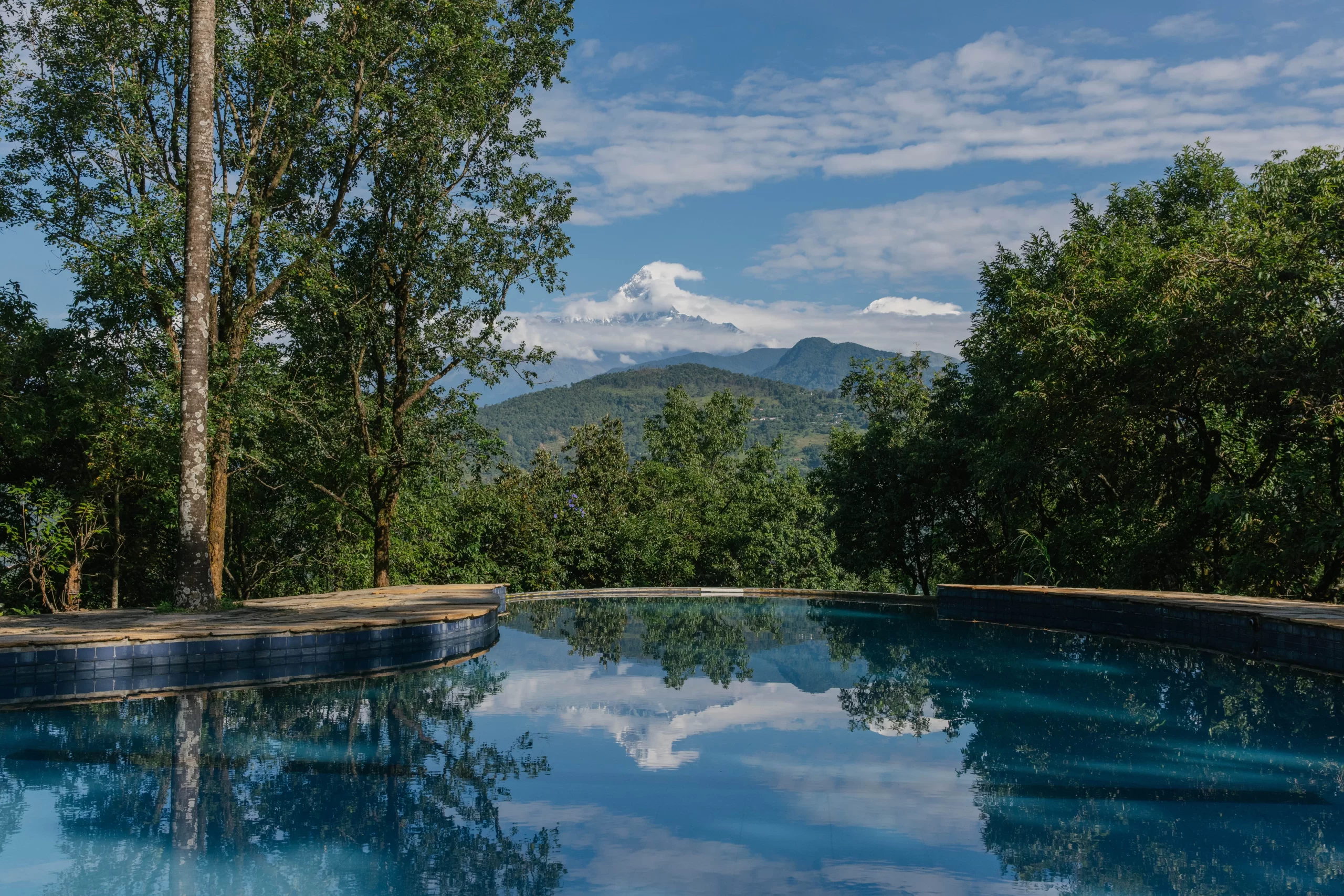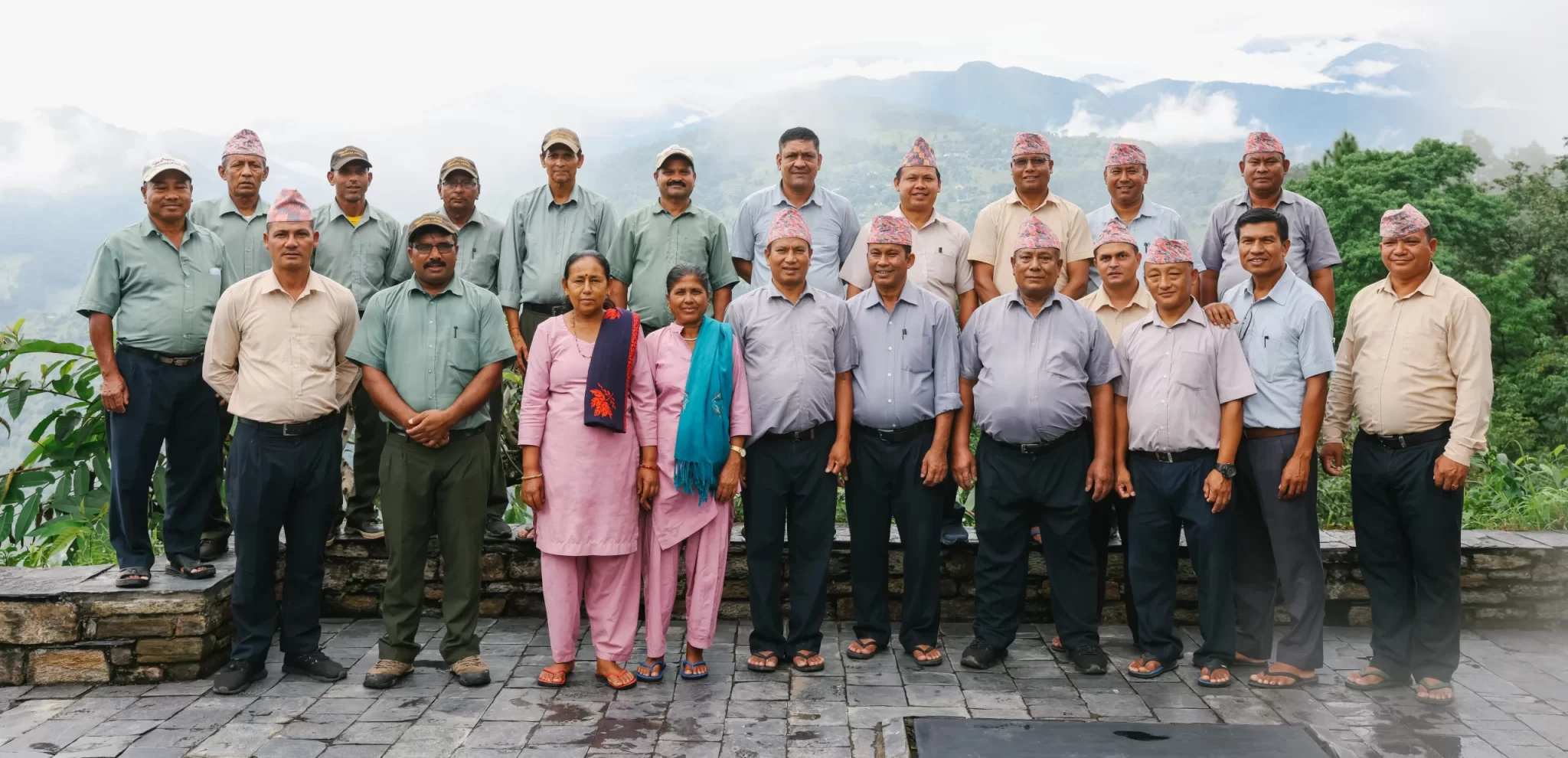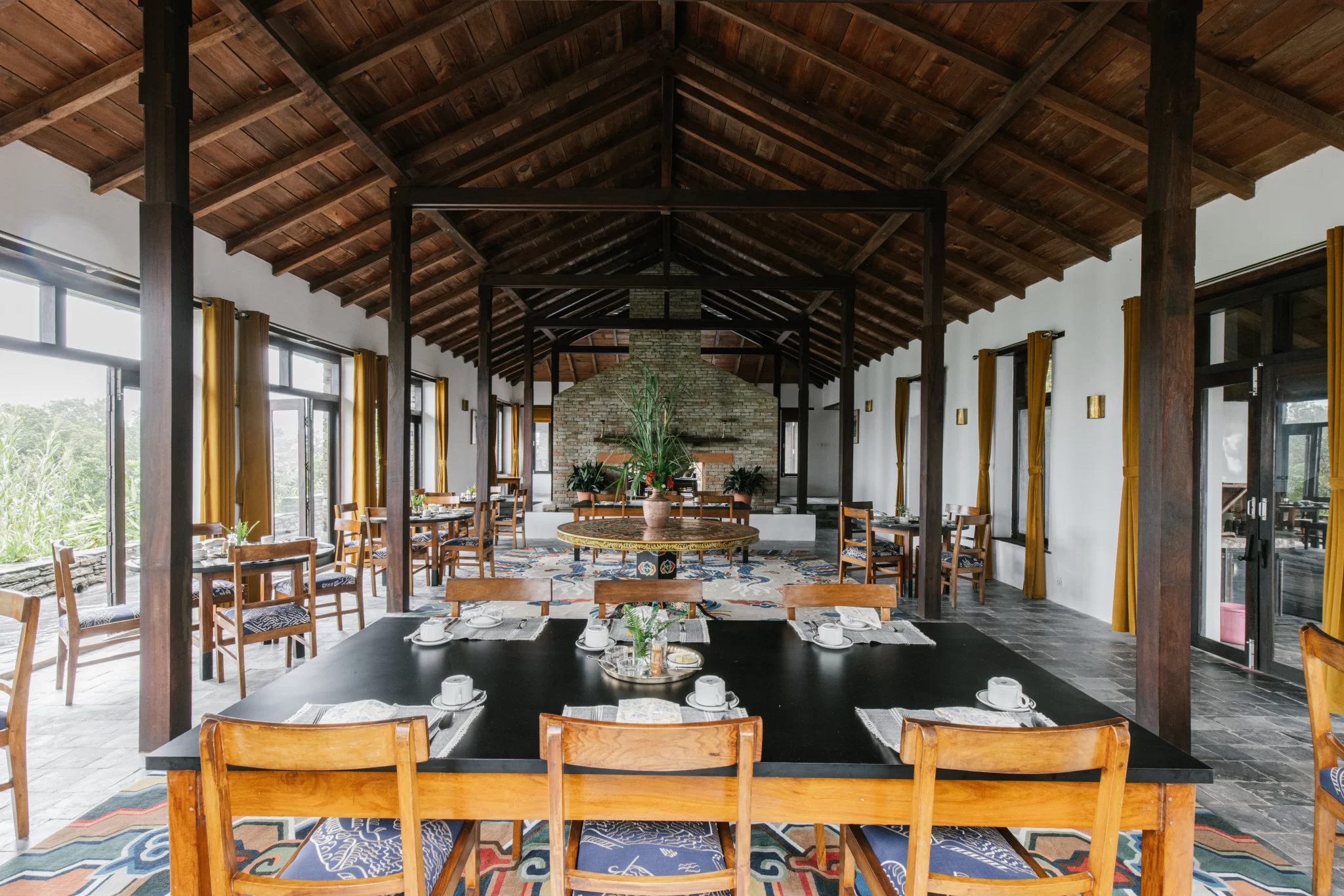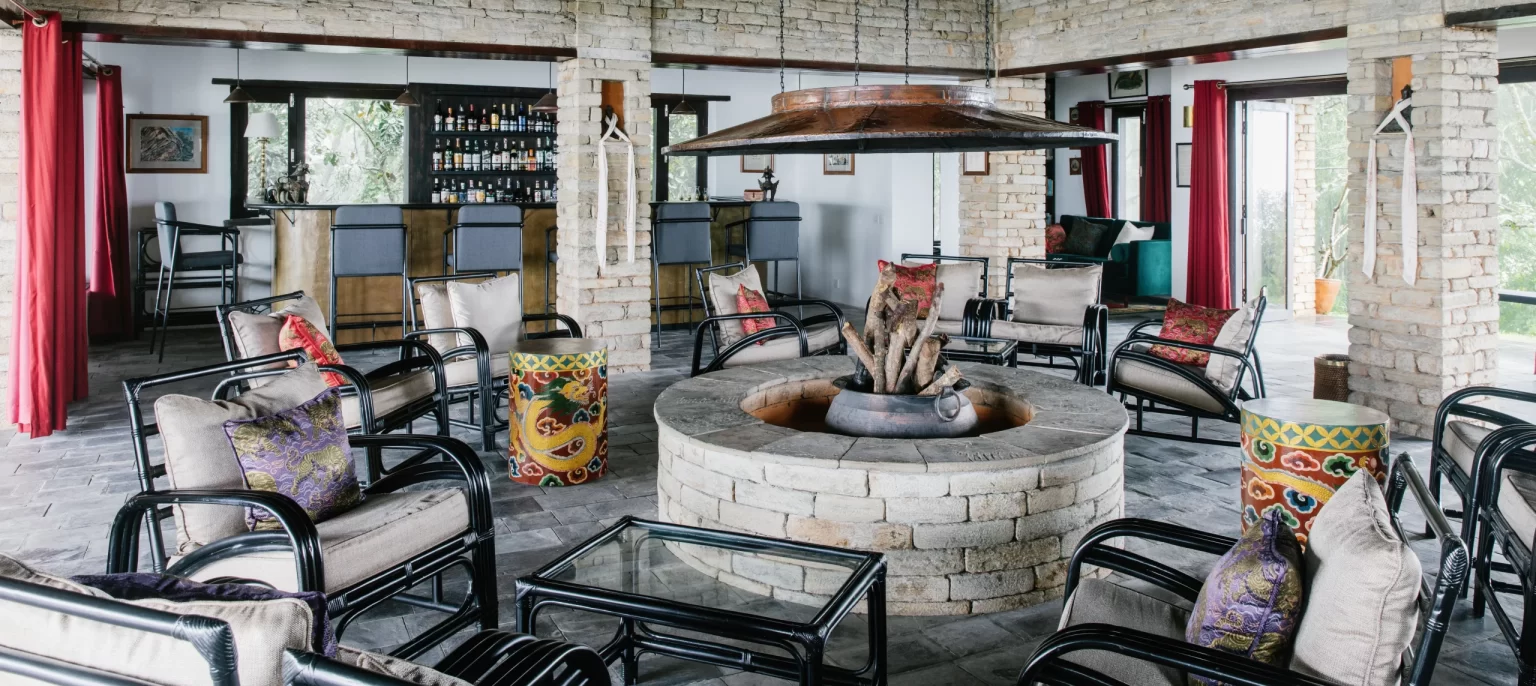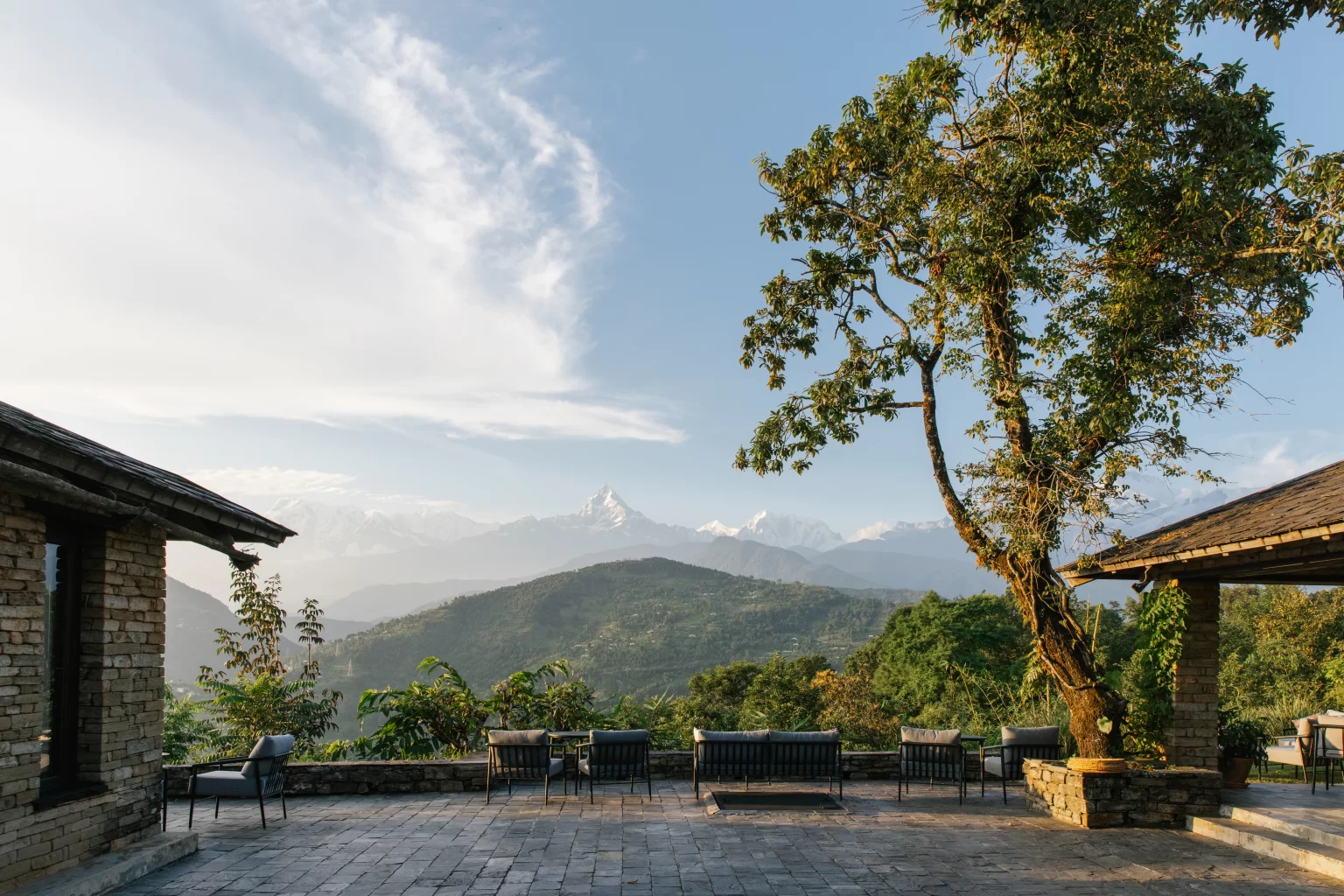Q2. What specific sustainable practices has Tiger Mountain Pokhara Lodge implemented to minimize its environmental impact? How do these practices contribute to the overall well-being of the local ecosystem?
There are a wealth of measures and actions – too numerous for a complete list here. To name a few:
1. Environment – We currently have zero waste to landfill by reducing, reusing and recycling as much of our waste as possible. The great bugbear if plastic – we have removed all single use plastics under our control and are left mainly with plastic bottles (recycled) and plastic wrap on inward supplies (minimised and stored pending a solution to disposal). We engage with suppliers and distributors to challenge the need for such wrap. We are a founder signatory of UNEP/UNWTO Global Tourism Plastics Initiative, a worthy effort to drive single use plastic out of tourism operations. We are also signatories to the UNWTO Tourism Declares a Climate Emergency supporting efforts to reduce the CO2 emissions in tourism. Some relevant carbon data is shown below. In the housekeeping side, we have removed complex chemicals from our cleaning inventory and use vinegar, bicarbonate of soda and similar simple compounds. In the lodge grounds we have rewilded, letting the hilltop site evolve in its natural state to grasslands (which were and continue to be harvested annually for thatch) and Schima Castanposis forest typical of the area. We do not have manicured, imported lawns or exotic species outside the vegetable garden.
2. Staff – We have a remuneration and welfare package among the best in country with inflation-plus increments, full family medical reimbursement, etc. Even though we are a small owner-managed business, the senior staff recommend the pay increments and then the directors review and normally approve it. I think the proof of the pudding is that, at the 25th Anniversary of the lodge, over 80% of the staff were still working who had been working on day 1. The Regenerative Action Advisory Group (RAAG) is a staff forum free for anyone to join to recommend action and monitor works undertaken under our regenerative approach.
3. Community – our priority is both to maximise local employment from the communities around the lodge and also to source as much local supply items as possible. The Community Support Partnership Programme (CSPP) is led by local staff and works with the local community to ascertain community-based and -led projects espoused by the village for socio-economic upliftment. Historically these have focussed on some health and mainly education projects. We also provide an annual subvention to the Community Forest User Group (CFUG) to support their management of the forests around the village for productive use, regeneration and habitat conservation. We had a farm to fork approach long before it was not merely fashionable, but normal. Much of our food supply is form the local area and we encourage farmers to keep us informed of what is available so we can buy.

